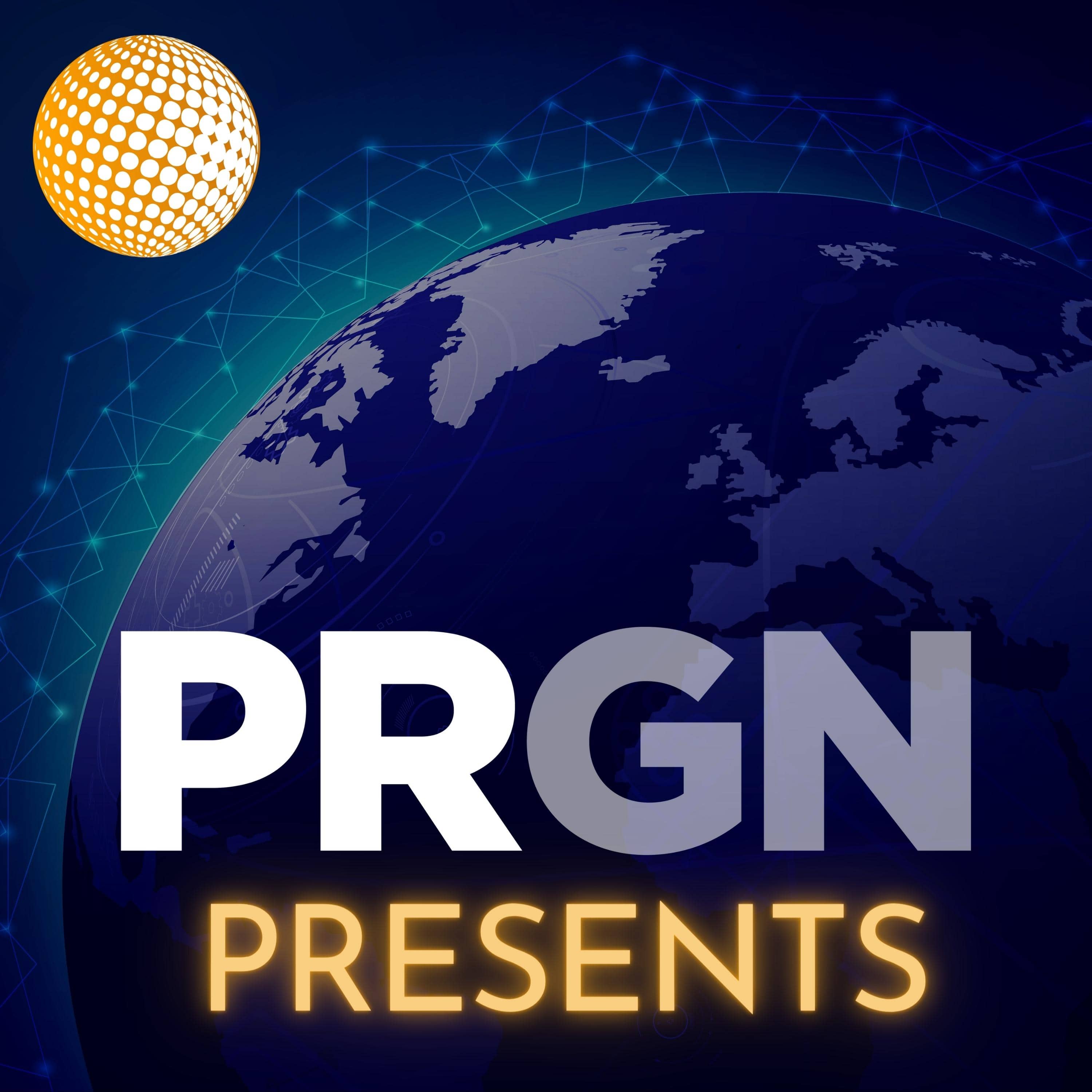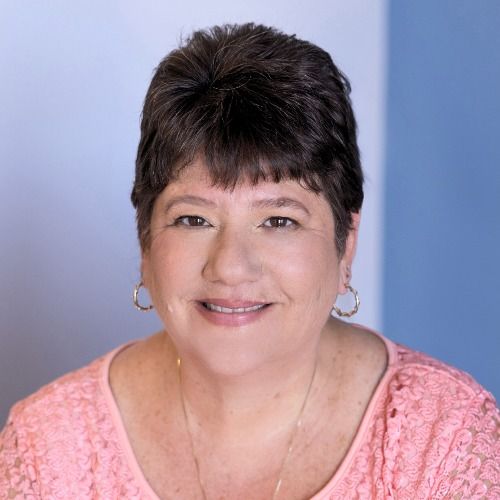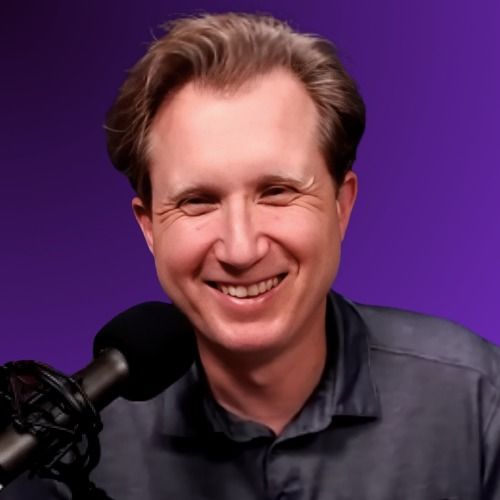S1 E3: Embracing Sustainability with Mark Paterson
Embracing sustainable development means understanding and reporting the social and environment (non-financial) impacts and risks associated with a company’s operations. Sustainability is the new digital. Any person or business that ignores it will be left behind.
About the Guest
Mark Paterson, principal of Currie Communications in Melbourne, Australia, gives voice to people and organizations that sustain life on the planet. As a change-agent, he turns visions into strategies that are doable, tells stories that inspire sustainable development and brokers collaborations that solve problems. The son of Corgi breeders, Mark sees the world changing for the better.
About the Host
Abbie Fink is vice president/general manager of HMA Public Relations in Phoenix, Arizona and a founding member of PRGN. Her marketing communications background includes skills in media relations, digital communications, social media strategies, special event management, crisis communications, community relations, issues management, and marketing promotions for both the private and public sectors, including such industries as healthcare, financial services, professional services, government affairs and tribal affairs, as well as not-for-profit organizations.
PRGN Presents is brought to you by Public Relations Global Network, the world’s local public relations agency. Our co-host and executive producer is Adrian McIntyre with Speed of Story, a B2B communications firm in Phoenix.
Follow the Podcast
If you enjoyed this episode, please follow PRGN Presents in Apple Podcasts, Spotify, Google Podcasts, or any other podcast app. We publish new episodes every other Thursday. To have them delivered automatically and free of charge, just choose your preferred podcast player from this list, open the app, and click the button to “Follow” or “Subscribe” to the show: https://prgnpodcast.com/listen
Need to hire a PR firm?
Leading a business effectively in today's fast-paced world requires expert guidance and a strong communications strategy. No matter where you do business, PRGN has a member agency in your region with the deep industry expertise, international experience, and local market knowledge you need to connect with your target audience and achieve your goals. Find a PR firm near you »
Transcript
Welcome to the Public Relations Global Network's 30th anniversary podcast. I'm Adrian McIntyre ...
Abbie Fink:And I'm Abbie Fink, vice president/general manager of HMA Public Relations in Phoenix, Arizona and a founding member of PRGN. With public relations leaders embedded into the fabric of the communities we service, clients hire our agencies for the local knowledge, expertise, and connections in market spanning six continents across the world.
Adrian McIntyre:Our guests on this "limited edition" podcast series are all members of the Public Relations Global Network. They'll discuss such topics as workplace culture, creative compensation and succession planning, the importance of sustainability and Environmental, Social, and Governance programs, crisis communications, and outside-of-the-box thinking for growing your business.
Abbie Fink:For more information about PRGN and our members, please visit prgn.com. And now, let's meet our guest for this episode.
Mark Paterson:Hi, I'm Mark Paterson. I'm principal of Currie Communications from Melbourne, Australia.
Abbie Fink:Mark, thanks so much for coming on and talking with us today. One of the things that I find so fascinating in our conversations on sustainability and it's become, I think, a bit of a buzzword, at least here in the States, we're all talking about sustainability, but it's been something that you've been invested in for quite some time. So talk a little bit about that and why it's so important to you personally, and as your business and what it means as you're advising your clients on the importance of really making a stand on the topic.
Mark Paterson:Wow, there's a lot to unpack there, Abbie. Thank you. I'm a farmer's son and farmers work and live in the landscape and we can see what's actually happening with the land, the climate, the water, as a result of the food now, how we grow food. So I've always been aware that to continue to farm, to grow food, to work with nature, rather than against it, it's really important to sustain agricultural production. It's the same for business and the principle of business. So it's understanding the impacts from your operations, from your activities so from going from farming into journalism and now into corporate communications and corporate sustainability. That's why it's important to me because I can see that nature needs to be treated well and that's become a life force for our business and what we try to do. Then we've come to understand that sustainability is not just about the environment, but it's also about people so people and planet. You've got to treat things well, be kind to them to continue to work with them, whether they're people or the planet so that's our philosophy of our business.
Abbie Fink:How are you advising clients to think in that same direction? I mean, that's a big topic and not everybody is going to think it matters for them to care that much.
Mark Paterson:Yeah. For most companies, they understand that they have a social license to operate. There is a permission from investors, consumers, government, from workers that they continue to be allowed to operate, that you get access to customers, to good people to work for. And increasingly, companies are aware that how they treat people and planet is important to workers, important to investors, to banks, lenders and to customers and to their business partners. Many companies now, or organizations that we work with, they don't need a lot of convincing that their reputations are partly shaped by how well they're seen to be treating others.
Abbie Fink:Who in the company is typically tasked with this responsibility? Who are you working with in these corporations? Where does this sit?
Mark Paterson:In some organizations at a CEO level, or it comes out of a Chief Sustainability Officer, depending upon the size of the organization that you're working with. Interestingly, it's directors of companies, of publicly-listed companies, for example, that are talking with their CEOs about this. In some jurisdictions like in Australia, for example, there's a legal precedent now that says that if a public company ignores managing climate risks to the organization, risks around extreme weather events, droughts, for example, floods that affect the ability of the business to operate, then the directors of those companies are duty-bound under law to manage those risks around climate. The change in climate is one of those environmental risks in sustainability, which is often framed as environmental, societal, economic and sometimes governance. Corporate governance fits in there as well, depending upon which framework or lens you use to define sustainable business.
Abbie Fink:It sounds like this could be a very costly endeavor to begin these programs, which might make it impossible for some businesses to make that kind of investment. Does it have to be expensive?
Mark Paterson:It doesn't have to be expensive. I mean, at the end of the day, your stakeholders, whether they are the people that are working in your business, people on your board, the people who supply you with products and services, your investors, at the end of the day, they define what is sustainable for you, what they want you to achieve around human rights, around management of water and waste. They decide which are the issues to work with. They don't expect you to solve and manage everything straightaway at the beginning. It's a journey. It's as much a journey of understanding what the sustainability impacts and risks are for those stakeholders, as it is for the company. So you don't just go out and spend a million dollars over the first five years. Depending upon the size of the company and the nature of the risks and impacts on the business, whether that's slavery in the supply chain, the risks of modern slavery, people being not paid well, losing their freedoms or whatever, that might be something that's important to investors so you can start off small. We started off small as a company. We've been working in sustainability communications for over 20 years, but we only really bit the bullet in 2014, became hardcore corporate sustainability after taking a journey. We didn't spend much in the early years, but it took us five to 10 years to work out which issues, topics around society, around the economy, around environment were important to our stakeholders. They're the ones that we're focusing on managing now.
Abbie Fink:Then the word sustainability in this context is really about impact, on our community's impact on the world and whatever part we can play. It could be a very small part of it, but as long as we're making that effort, we're building that process of sustainability.
Mark Paterson:Yeah, great way to describe it, Abbie. Absolutely. So you think globally, sustainably, big, you act local, at your scale, over which you have influence. You can influence what your suppliers do with their people, whether they keep a record of their greenhouse gas emissions, like do they offset carbon emissions from their travel, for example? So you can have influence within your supply chain, within your stakeholder networks at a local level. That's where real action happens. So yeah, you start small on the things that matter and impact is a great word that you used. There's a lot of talk about ESG. Everyone's talking ESG, Environmental, Social and Governance. ESG is investor talk for sustainability, but investors and ESG is about managing the risks. They're looking at protecting shareholder investor value by managing risks associated with human rights, health and safety, diversity, inclusivity, equity, they're the social risks sort of, for example, and the environmental ones around water, around waste, around greenhouse. So they're looking at managing risks so that they don't affect shareholder investor value. Risk sustainability is about impact and trying to operate your businesses in a way, your policies, your practices, your products in a way that creates a positive impact that increases and creates value for people and the environment. You hear people talk now in sustainability about being net-positive, not just carbon-neutral. They actually want to regenerate like Walmart. "We are a regenerative company." So they're thinking now about the positive, net-positive impacts of their sustainable development, of the way they run their business.
Adrian McIntyre:Sustainability is such an interesting conversation because it's one of these things that once you buy into it, there's no turning back and everything shows up through that lens. But getting people to the point where they have embraced wholeheartedly, as you and your clients and many others have done, seems tricky. Stakeholder capitalism is a bit like democracy. It's a good idea ... and it's messy in practice. The glue that makes it work is communication. So talk to us a little bit specifically about the communication piece. How do you work with the media, with internal and external communications within and without these companies, to really have participation, be informed, be educated and all be aligned with those goals?
Mark Paterson:Great question, Adrian. Communications is like talk, and it could be two-way and that's fine. But you mentioned the word engagement, and that's the key here for stakeholder capitalism is involving those stakeholders, workers, customers, government policymakers, suppliers, whoever they are. They might be in your supply chain, yeah. You involve them in designing solutions or movements or campaigns to address certain sustainability impacts. So you meet with them. You have reference groups, advisory panels. We do all this community engagement and stakeholder participation work, but you actually involve them in the co-design of frameworks, solutions, products or processes that produce sustainable outcomes, better outcomes for people and the planet that don't use more than we need to use, for example, that don't make our kids fat and lazy, all right? Okay. What type of product? What type of practice? Where do we get our ingredients or inputs from? Involve them. We have these stakeholder groups that come together twice a year and they say, "Right, these are the important issues this year," whatever that might be. It could be around gender equity might be more important. So, okay, what are the types of programs of leadership development in our company? What are the types of products? I mean, Unilever has done amazing things with creating products and campaigns that address the specific needs of customers segments. But they get together with their customers and their marketers and their people and they design these products and their promotions in a way that involves the stakeholders. That's a long answer; I apologize. But communications is no longer good enough and public relations has always been the art of managing the relationship between an organization and its publics. Well, in sustainable development, that's all we're doing. We're involving stakeholders in the co-design, collaboration, design, practices, policies and products that are better for people and the planet.
Abbie Fink:Well, and there's so much now that we're hearing about the workforce, those that are coming into the workforce now that want to work for a company that is taking a stand on any topic, again, these issues that you've outlined and so it's good business to be doing this. I mean, we can find better employees. We can be a better workplace. We can make a bigger impact on our communities by doing the right thing. I think the challenge becomes what's right for your business. What makes the most sense? What can you do and take those first steps to do it? Then as you said, involve those that are important to your business in making those decisions. That's where you get to that point of it becomes just part of your culture, part of the nature of the business. It's not a question any longer. It's part of who we are.
Mark Paterson:It's part of our mission. Three out of four people who come to our company now come to us because we're a certified B Corporation focused on sustainable development. These are people in the age bracket of 23 to 32. Three out of four of them, that's the thing that gets these great people in.
Adrian McIntyre:Thanks for listening to this episode of the Public Relations Global Network's 30th anniversary "limited edition" podcast series.
Abbie Fink:You can find all the episodes now in your favorite podcast app. Episodes are also available on our website – along with more information about PRGN and our members – at prgn.com.





